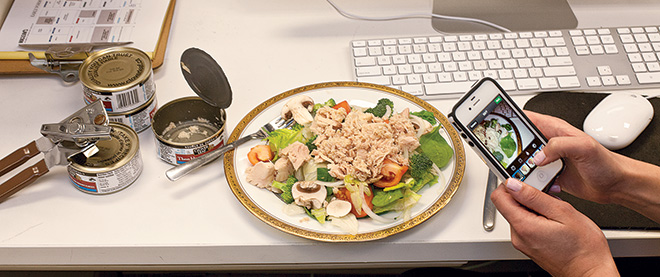Your office colleague is not your friend
Miss Manners on colleague/pal confusion and other etiquette fails
Andrew Tolson
Share

“I was getting a massage when I felt one hand leave my shoulder and the masseuse began speaking—but not to me,” recalls Jacqueline Whitmore, an etiquette expert who has counselled Fortune 500 companies and the U.S. Department of Defense. “I realized she was talking on her cellphone!” It’s just the kind of behaviour she advises clients against. “Some of the most egregious etiquette fails in the modern workplace are mobile-device based,” she says, “like answering emails during a colleague’s presentation or speaking loudly on one’s phone at inappropriate times.”
Most of us have a handle on other universal professional etiquette truths: don’t microwave a tuna melt in the communal kitchen, be discreet about party invites not extended to everyone, and check the tightness of those pants. But the modern workplace—with its social-media communities, open-concept workspaces and blurred lines between colleagues and friends—offers new conundrums. That’s one reason Judith Martin, author of the long-running Miss Manners column and many etiquette books, co-wrote (with her son Nicholas Ivor Martin) Miss Manners Minds Your Business, a guide to leaping gracefully over work gaffe landmines.
One of the biggest social blunders she identifies is confusing colleagues for friends, expecting intimate disclosures or social invites. “Colleagues have lots of common interests, but when someone leaves the organization, they often don’t anymore,” says Martin. “That’s because they didn’t have friendship but collegiality—and that’s a good thing, that’s what co-workers are.” Martin hopes her book will help readers distinguish false professional etiquette obligations, like after-work happy hour. It’s okay to skip it if you’d rather go home, she suggests; professional politeness isn’t synonymous with sacrificing free time. The same is true of office distractions. Want to avoid doting parents with reams of baby photos? Provide a pleasant but non-committal “Oh, that’s nice,” then appear distracted. “While it is rude to seem bored,” Martin writes, “It is not rude to seem too busy.”
Another potential problem area is social media, where professional and personal info overlap. While updating your Facebook status with a rant about your manager is understood to be a bad idea, the culture of online oversharing is starting to bleed off the screen and into the cubicle. “Some clients tell me that young professionals seem to divulge a lot of little things that they think are important but in fact are not,” says Linda Allan, a Toronto-based certified management consultant, who notes that the common practice of tweeting banal musings or taking Instagram photos of meals is a training ground for poor self-editing skills. Behaviour such as detailing your commute or the had-to-be-there anecdote about your pet tends to be generational, she finds, more prevalent now than 10 years ago. “You don’t need to verbalize everything—it’s a time-waster,” she says.
The 140-character mindset can also result in too many work missives, says Allan, who advocates spending 10 extra minutes to compile ideas into a single note instead of firing off an email for every thought.
In the spirit of unintentional sharing, the open-concept workplace can offer a parade of irritations. Personal idiosyncrasies are on constant display. “You’re looking out at a sea of desks while trying to concentrate on a phone call and your vision is activated,” says Allan. Some co-workers are gathered for a YouTube clip; others are gesturing excessively at the communal meeting table. “Suddenly, silly thoughts enter your head, like ‘That sweater doesn’t look very good on him.’ ” You can’t change the office, but you can check yourself. “Your full focus should really be on the conversation you’re having,” says Allan, noting that inefficiency is the ultimate workplace manners fail.
Common sense dictates the golden rule—treat people as you’d like to be treated—is the most important etiquette standard, but Miss Manners says it’s not enough. “If you landed in the 18th century or modern Japan with just ‘Do unto others,’ you wouldn’t know what to do.” Ethics are important, but it’s the socially adept who win favour and influence people.